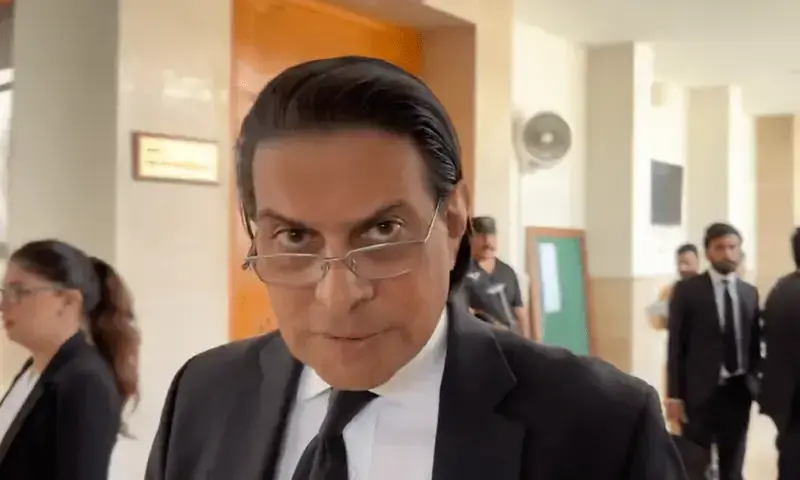Rejection of contempt plea against jail officials assailed


ISLAMABAD: Senior counsel Salman Akram Raja on Tuesday approached the Supreme Court to challenge the Oct 23 decision of the Islamabad High Court rejecting his contempt petition which he earlier filed against Adiala jail officials to seek enforcement of IHC’s directives on visitation rights of PTI founder Imran Khan with his legal team.
In an appeal moved under Article 185 of the Constitution, Salman Akram Raja, who is also PTI’s Secretary General, stated that the IHC while disposing of his contempt petition relied solely on oral assertion of the Adiala jail superintendent regarding alleged compliance with previous judicial directions.
The petitioner pleaded that the IHC failed to call for the relevant record to verify with the jail authorities about the implementation of earlier directions for making arrangements for regular meetings with Imran Khan at the Adiala jail. This constitutes a miscarriage of justice and a failure to exercise constitutional jurisdiction under Article 199 of the Constitution, the petition contended.
The petitioner argued that IHC failed to appreciate that its own previous judgment of March 24 had conferred a clear and unambiguous direction regarding visitation rights of the founding PTI chairman with his legal team and nominated coordinators, and that executive authorities were legally bound to comply with judicial orders unless modified or set aside by a superior forum.
IHC erred by disposing of case without looking at record, says Salman Akram Raja
The right of a prisoner to consult and communicate with his legal counsel is an integral part of Articles 4, 9, 10, and 10-A of the Constitution, which guarantee protection of law, liberty, fair trial, and due process, the petitioner stated, adding the high court while disposing of the matter on administrative grounds failed to safeguard these fundamental and inviolable rights.
The high court misapplied Rule 265 of the Pakistan Prison Rules, 1978, without examining whether its rigid application is consistent with constitutional guarantees. These rules, being subordinate legislation, cannot override or restrict fundamental rights or judicial orders issued under Article 199 of the Constitution, the appeal argued.
Moreover, the high court also failed to appreciate that the administrative discretion of jail authorities is subject to judicial supervision, the petition argued, adding by directing strict adherence to the jail manual without enforcing previous judicial orders, the high court effectively allowed executive non-compliance to override judicial authority, contrary to the doctrine of separation of powers.
The petition contended that the high court erred in law as it disposed of the petition summarily, without examining the record of multiple prior instances of non-compliance brought on the file, thereby failing to apply judicial mind and rendering the order mechanical, perfunctory, and devoid of reasoning.
Thus, the high court order resulted in a grave miscarriage of justice, as it deprived the petitioner and PTI founder of their rights to effective legal representation, consultation, and coordination in ongoing legal proceedings across the country.
The order also frustrates the principle of judicial supremacy, as it allows executive authorities to neutralize the effect of court orders through oral statements, the petitioner regretted.
The high court also failed to exercise its supervisory and coercive jurisdiction vested under Article 204 of the Constitution to ensure implementation of its previous orders and to hold the respondents accountable for continued defiance. Instead, it chose to dispose of the petition, and rendering the earlier judicial directions ineffective.
The Supreme Court has consistently held that when the high court declines to exercise jurisdiction vested in it by law, or misinterprets the scope of its powers under Article 199, such refusal constitutes an error of law justifying the grant of leave to appeal, the petition maintained.
Published in Dawn, November 19th, 2025




